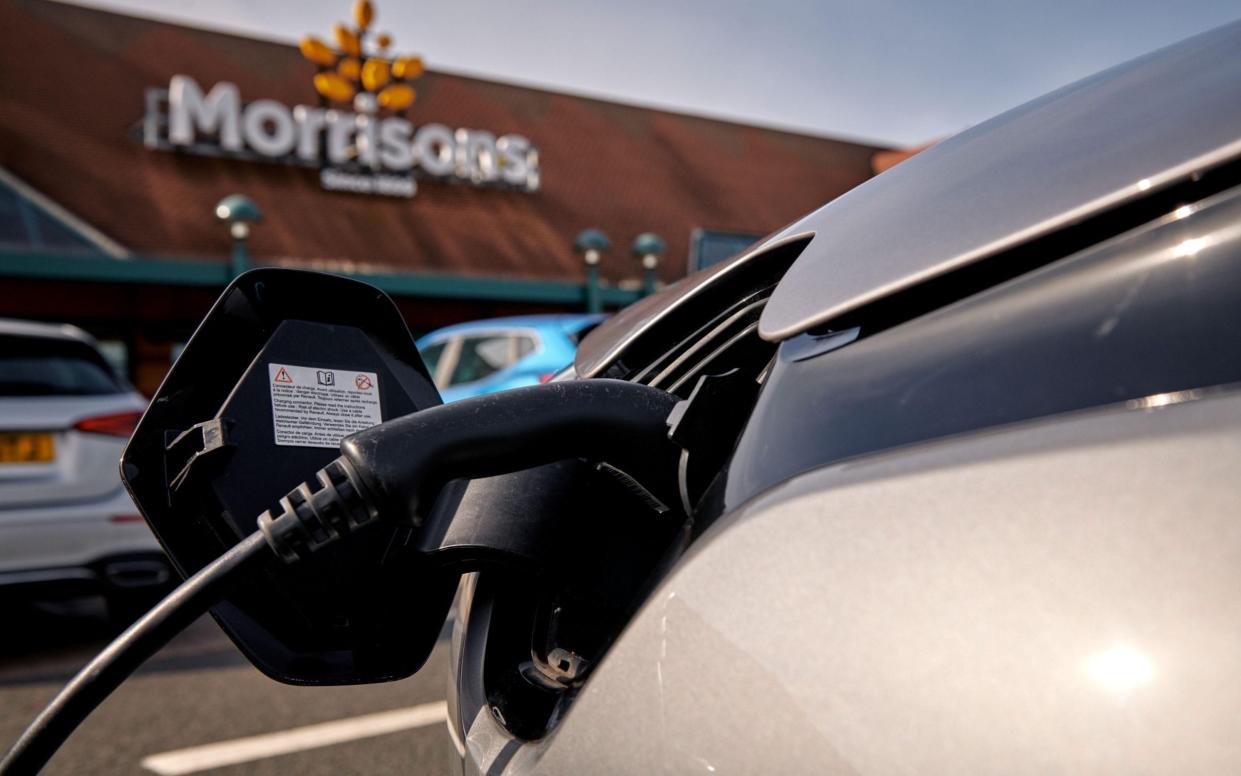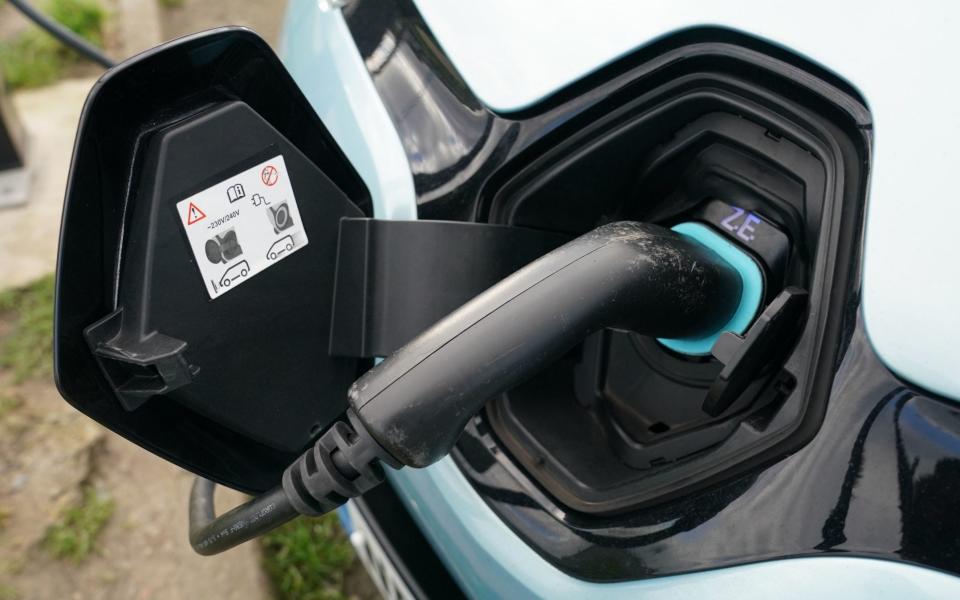Motorists should be charged per mile to counter electric vehicle traffic fears, says Blair Institute

The Government is being urged to charge motorists by the mile amid warnings that the switch to electric vehicles will triple the amount of time we spend stuck in traffic.
There are currently around 100,000 electric cars on Britain's roads, but that figure is expected to soar to 25 million by 2035.
While the switch will help the UK reach its ambitious climate change targets, the dramatic drop in the cost of driving, as drivers no longer have to pay for fuel, is expected to massively increase congestion.
The move to battery powered cars will also see the Treasury miss out on an estimated £260 billion in fuel duty and vehicle tax over the next 20 years.
Now, a report from the Tony Blair Institute for Global Change, is recommending a shift to road pricing, with motorists charged according to when, where and how far they drive.
Researchers have estimated that by 2040 congestion will be so bad that drivers will spend up to 32 hours a year stuck in traffic, up from an average of nine hours today.
They also predict the loss of revenue for the Government through the sale of petrol and diesel will mean income tax will have to rise by six pence in the pound to make up the shortfall.
The report recommends the Government considers introducing one of four methods of road pricing in order to discourage drivers making needless journeys and to guarantee some form of revenue.
The proposals
It is suggested motorists could be charged a flat rate for every mile they travel, with each driver allowed a number of free miles per year.
But it warns that such a system would be unlikely to have much of an impact on congestion.
Another suggestion is to bring charges based on geography similar to London's congestion zone or to apply a sliding scale of cost based on how long each journey takes.
The final proposal is to bring in a dynamic road user charging system, similar to one in Singapore, where higher costs are applied to the most congested routes at the busiest times of day.
The report's authors go on: "The key common factor with all road-pricing models is that they come with significant design issues and trade-offs, which means that – as things stand – none are politically attractive.

Attacking the motorist
"The collective challenge we face is to work out how to deal with these challenges, or risk sleepwalking into all the
downsides of a 'do nothing' scenario."
However, the report also warns that any attempt to change the way car journeys are charged will be "perceived as an attack on motorists" and could be politically explosive.
However, it urges a decision to be taken sooner rather than later, stating: "[The] Government should take action now to signal its direction of travel; that it intends to introduce a form of road pricing in the near future to compensate for the loss of fuel duty; that it will use that opportunity to reduce the external costs of driving, delivering benefits both to motorists and to society at large; and that it will set out proposals on how to do so in the next 12 months."
The ‘road pricing’ trap
The AA said the report's findings appeared to be based on elements of its Road Miles study, which it had shared with Mr Blair in 2006 when he was in Downing Street.
Edmund King, president of the AA, said: "This report, although well intentioned, in not wanting to alienate drivers, still falls into the ‘road pricing’ trap.
"Even referring to it as ‘road pricing’ means it is likely to backfire with the public. History has shown that the straight concept of ‘road pricing’ will never be popular with drivers and is often described as a ‘poll tax on wheels’. I discussed this with Tony Blair in Downing Street in 2006."

